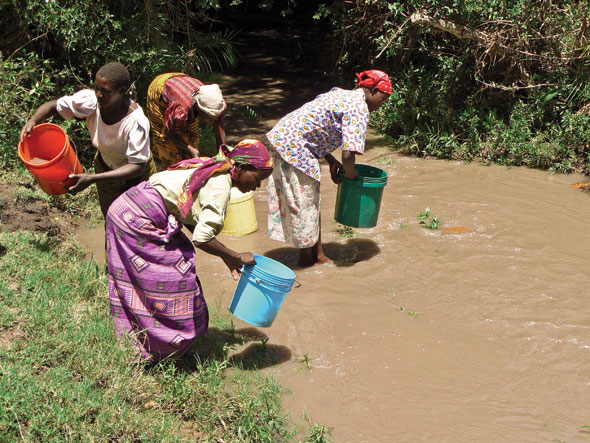
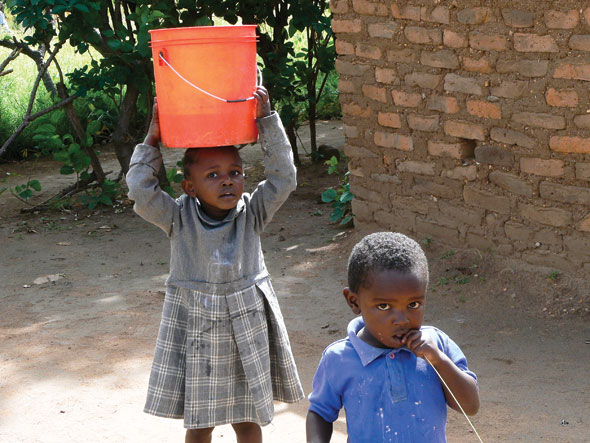 Tanzania is a land of great hardship. Its disparity contrasts greatly with our life in Canada. Tanzania's population is over 40 million, but 44 percent are under the age of 14. It is not uncommon for people in Tanzania to walk many hours to fetch water that is not even considered safe to drink. In the Western world, we typically wake each morning and turn on a tap without giving it a thought. Most Canadians eat at least two meals a day and know that they can access medical help if needed. In Tanzania, life expectancy is 51. The economy is 80 percent agricultural, but only four percent of the land is arable and many people do not have enough to eat. Despite living under such hardships, Tanzanians are full of life and spirit. They have much to teach us.
Tanzania is a land of great hardship. Its disparity contrasts greatly with our life in Canada. Tanzania's population is over 40 million, but 44 percent are under the age of 14. It is not uncommon for people in Tanzania to walk many hours to fetch water that is not even considered safe to drink. In the Western world, we typically wake each morning and turn on a tap without giving it a thought. Most Canadians eat at least two meals a day and know that they can access medical help if needed. In Tanzania, life expectancy is 51. The economy is 80 percent agricultural, but only four percent of the land is arable and many people do not have enough to eat. Despite living under such hardships, Tanzanians are full of life and spirit. They have much to teach us.
Top: In Koleli, 3,800 people rely on water from a polluted river source; bottom: Children learn how to carry water at a young age
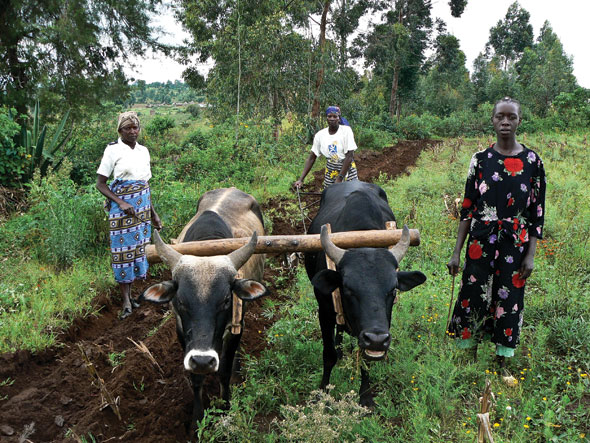
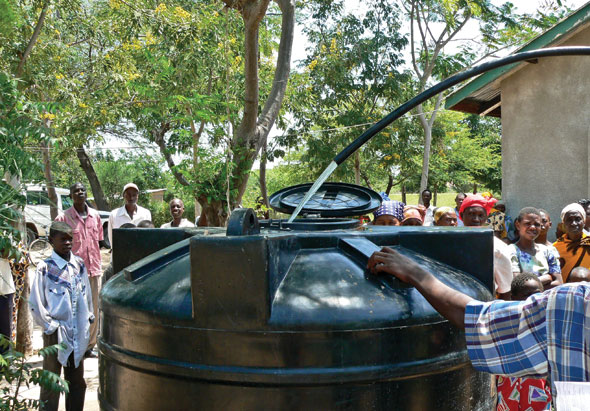 Water
Water
Lack of clean water is a significant problem in Tanzania. Collecting water can take up to five hours a day. Some women carry as much as 18 kilograms on their heads as they walk 10 kilometres or more each way, to and from the water source. The Salvation Army is providing access to clean water by building wells and boreholes across Tanzania.
To ensure wells are sustainable over many years, each village elects a community well management team and determines rules for the well. A low fee is established so that funds are set aside to replace parts, maintain the well and ensure that everyone has access to safe drinking water. Adding community gardens near these wells provides opportunities for agricultural training and projects that can help diversify crops and lead to improved family nutrition.
Top: An ox plough at Kitagutit Corps is used in the community garden and also as a means of income generation; bottom: The water tank at Nasa Corps holds 2,000 litres of safe drinking water pumped from a new Salvation Army-built borehole
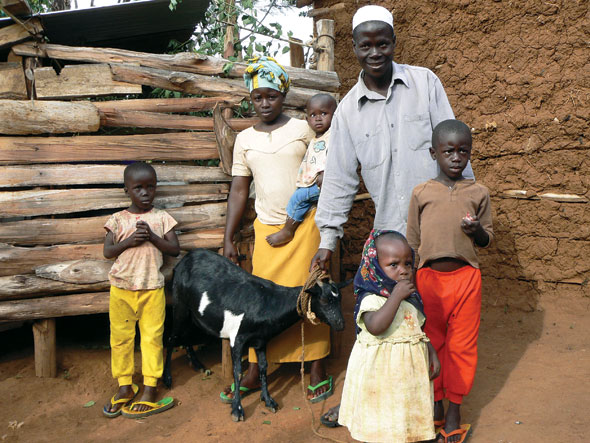
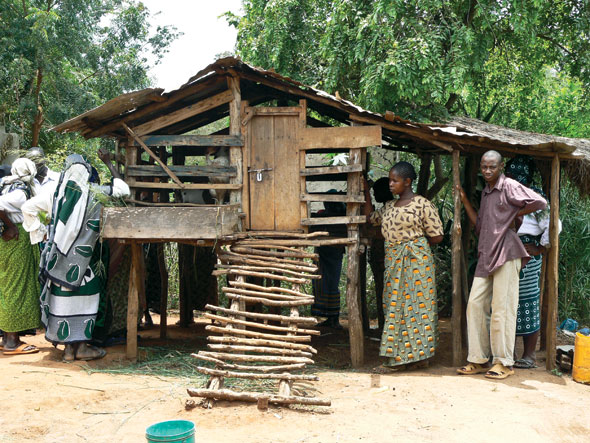 Goat Banking
Goat Banking
Tanzania is one of the poorest countries in the world. Many of its people live on less than $1 USD per day, so there are few options available for those living in rural communities to escape poverty. Goat banks provide a unique opportunity for families to become self-supporting. A pair of young goats is provided for a family to raise and breed. Training is provided on how to care for them and once kids are born, they are passed on to another family. The original family continues to breed their goats. Goats breed easily, are easy to care for and can provide milk and meat for families.
Top: A family participates in a goat-banking program at Sirari; bottom: A goat enclosure at Lugoba keeps goats healthy and enables easy collection of manure for gardens
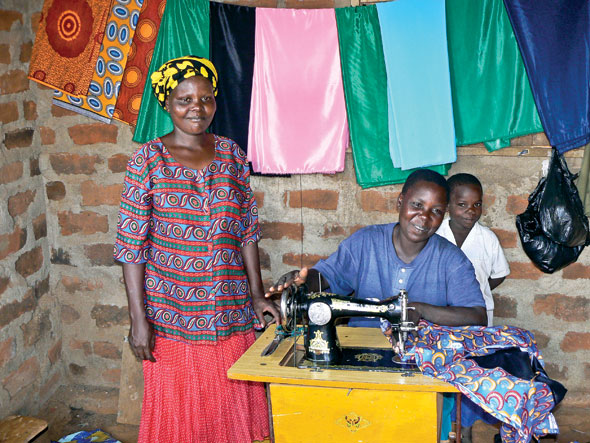
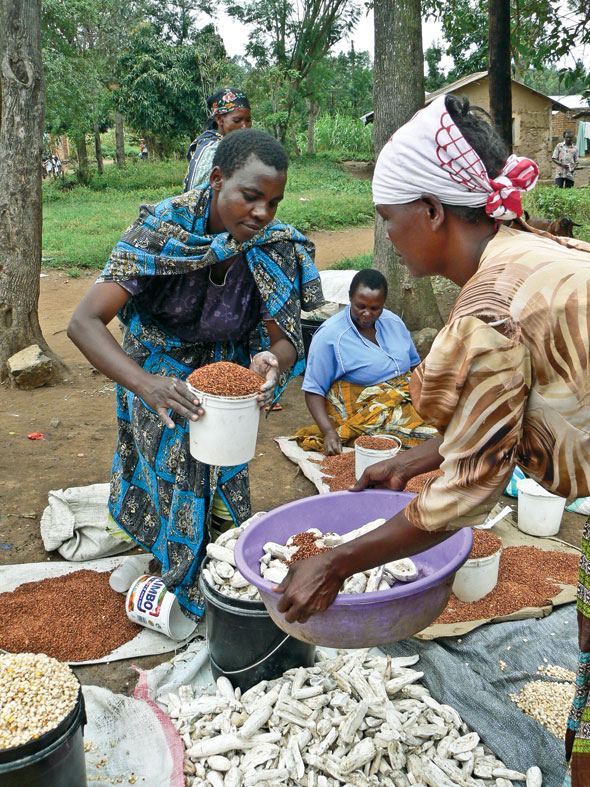 Microcredit
Microcredit
One of the ways The Salvation Army addresses poverty is through microcredit projects. Few of the recipients would be considered eligible for loans through a bank, but through income-generating projects the poorest and most vulnerable have the opportunity to develop a means to earn a steady income. Initial loans are usually under $100, and recipients form small groups that work together to support each other.
Top: Women run a sewing shop in Kyoruba; bottom: Women from the microcredit program sell cassava and maize at Kemange market
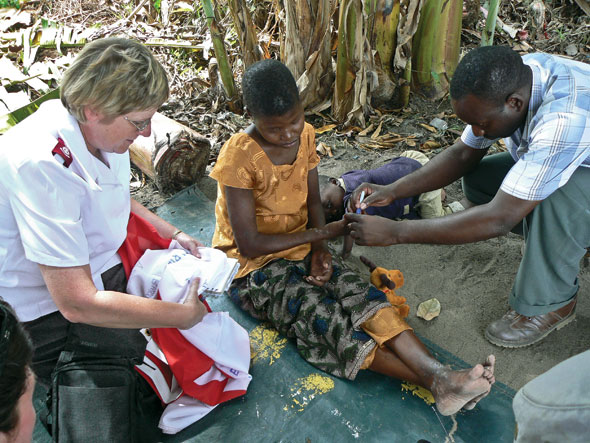
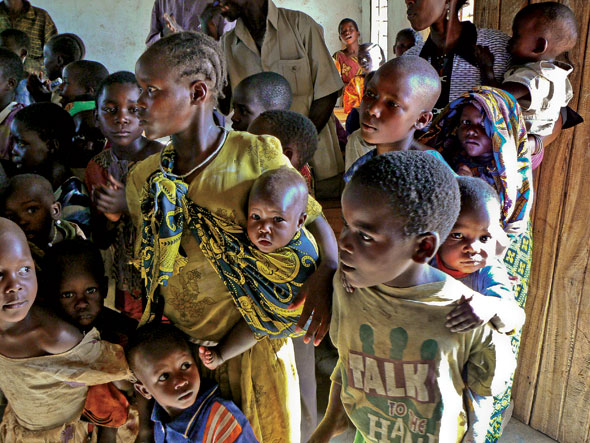 HIV/AIDS Orphans
HIV/AIDS Orphans
HIV/AIDS has reached pandemic levels in Africa. A 2005 survey showed there are 1.1 million orphans in Tanzania alone. Older siblings are often left with the responsibility of raising their brothers and sisters. The Salvation Army is actively involved in caring for orphans by providing kids' clubs to meet the psychosocial and emotional needs of children who have suffered loss. Salvation Army support teams visit those living with HIV/AIDS, providing counsel and practical help and working to ensure that no one is facing life alone. The support teams also link those living with HIV/AIDS with medical clinics so people in rural communities can receive necessary medication. They also provide opportunities for those in rural villages to become aware of the issues concerning HIV/AIDS.
Top: Community members with HIV/AIDS receive regular visits from The Salvation Army's home-based care program; bottom: Children often have to take care of siblings after parents die
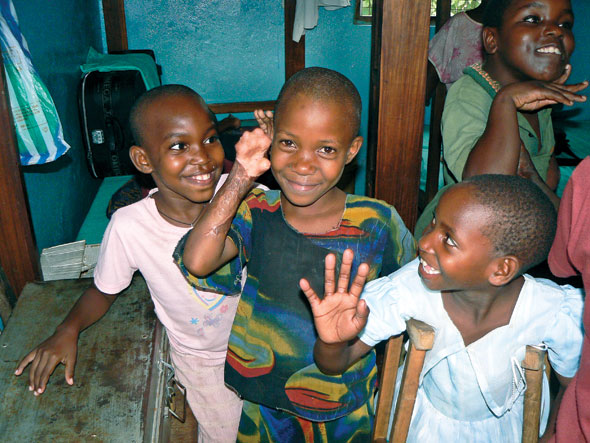
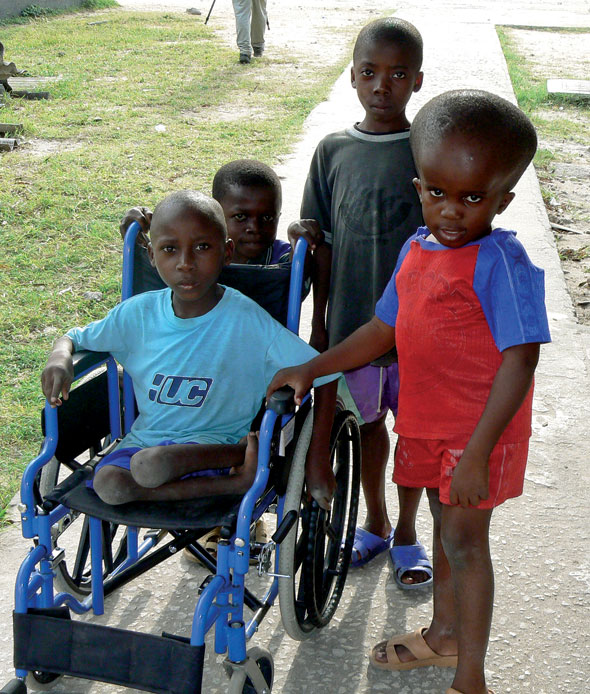 Special-Needs School
Special-Needs School
The Salvation Army operates one of the few special-needs schools in Tanzania. The residential school in Dar es Salaam provides education and housing for children with physical and mental disabilities. It also has an appliance centre that makes artificial limbs for children. The Canada and Bermuda Territory's child sponsorship program is actively involved with the children in this school.
Top: Girls with special needs at the Matumaini primary school; bottom: Physically handicapped boys at the Matumaini primary school
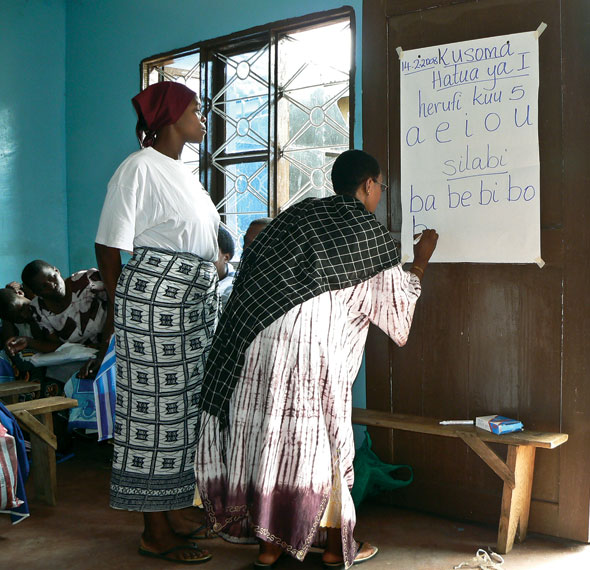
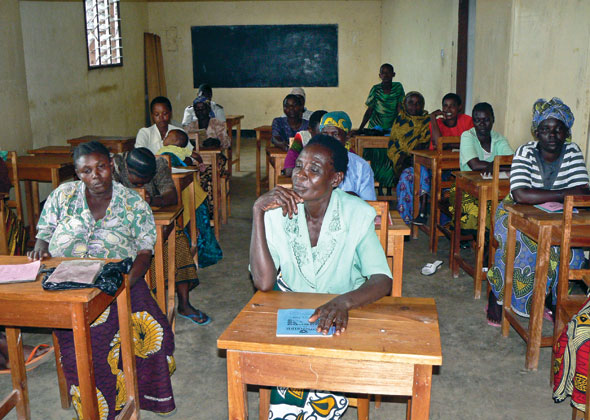 Women's Literacy
Women's Literacy
Women in Tanzania have the greater burden of responsibility for the welfare of their families. They are often at a disadvantage due to an educational system that puts priority on males. Classes in literacy, basic math, nutrition and business management make a significant difference to the ability of a woman to generate income. Sometimes these classes highlight other concerns, such as the need for eyeglasses. Each of these programs is developed at a local level that is appropriate to the economic environment of the community.
Top: Headmistress Katinga helps women with reading and basic math in Mwanza literacy program; bottom: Literacy class in Tarime
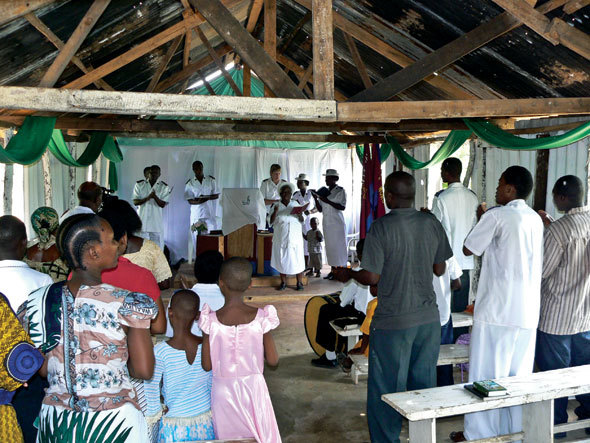
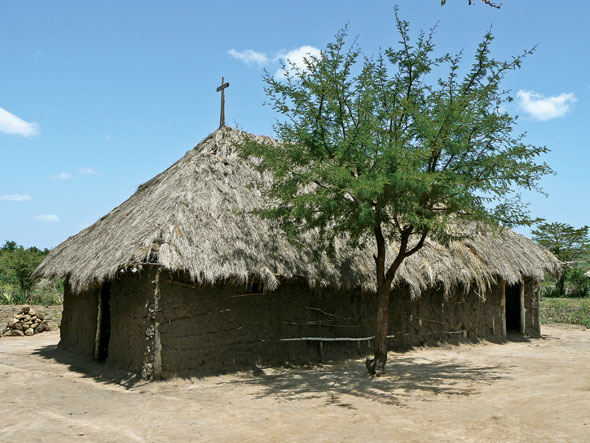 Corps Life
Corps Life
Corps life is flourishing in Tanzania. The Salvation Army has been active in Tanzania since 1933, and in 2008, Tanzania became a Salvation Army territory. Services are vibrant in song and prayer, with a passion, dedication and devotion that is unparalleled. In a land with so much hardship, The Salvation Army is a true light in its communities.
Top: Worship service at Kongowe Corps; bottom: Corps building in Koleli
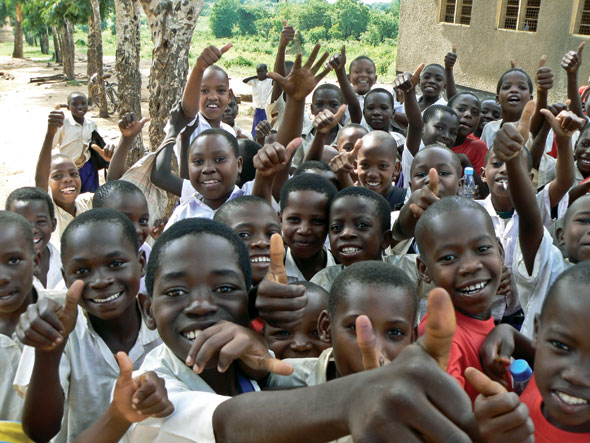
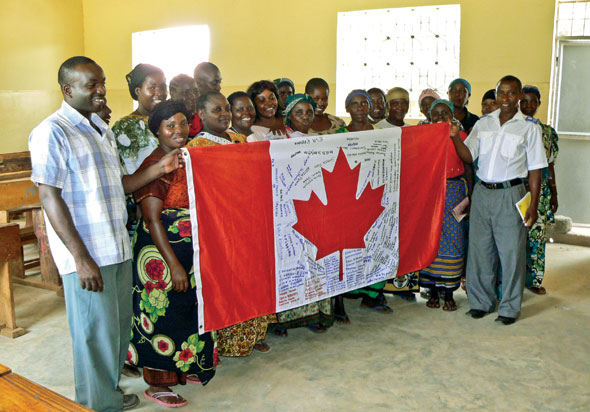 Canadian Response
Canadian Response
The 2009 Partners in Mission Appeal highlights Tanzania. A package containing videos, posters, children's resources and much more has been sent to all corps across Canada and Bermuda (click here for online version). You can also order a new fundraising CD with songs recorded live during worship services in Tanzania. These rare recordings will connect you with our Tanzanian brothers and sisters through song and praise.
Top: Orphans and vulnerable children receive support through after-school programs; bottom: Literacy class in Lugoba holds up Canadian flag
For more information, visit Salvationist.ca/partnersinmission









Comment
On Thursday, July 31, 2014, CANDIDATE JOSEPH RICHARD MTETE said:
On Thursday, March 21, 2013, Innocent Mantewu said:
On Friday, August 13, 2010, Kayleigh said:
On Wednesday, June 30, 2010, P. Gunderson said:
On Saturday, March 21, 2009, H. (Bart) Vincelette said:
Leave a Comment